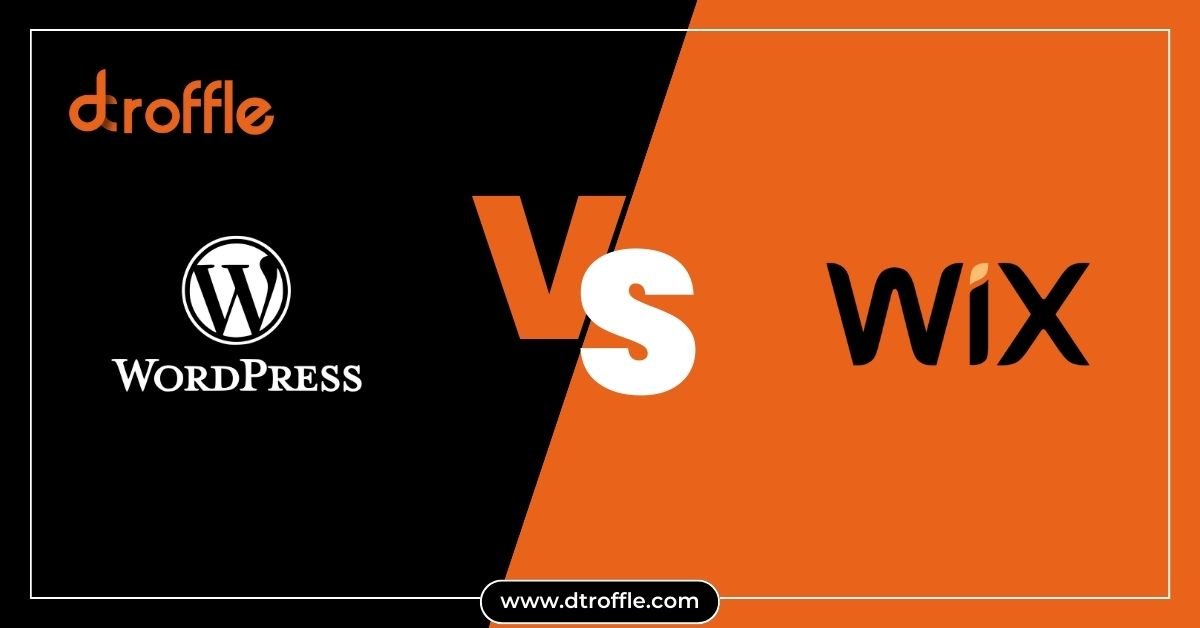Choosing the right Content Management System (CMS) is crucial for building and managing your website effectively. Two of the most popular options are Wix and WordPress. Each has its unique features, advantages, and limitations. This guide will help you understand the differences between Wix and WordPress, allowing you to make an informed decision on which platform is best for your needs.
Ease of Use
Wix:
Wix is renowned for its user-friendly, drag-and-drop interface, which makes it easy for beginners to create and manage websites without any coding knowledge. Its intuitive design allows users to add elements like text, images, and videos by simply dragging them into place.
WordPress:
WordPress, particularly the self-hosted version (WordPress.org), has a steeper learning curve compared to Wix. However, it offers greater flexibility and control. WordPress requires some basic understanding of web hosting and domain registration. The platform is highly customizable, but it may take some time to get used to its dashboard and the process of installing and managing plugins.
Customization and Flexibility
Wix:
Wix offers a variety of templates and design options that can be customized to fit your needs. However, its customization options are somewhat limited compared to WordPress. While Wix allows you to create visually appealing websites quickly, it may not be suitable for highly complex or large-scale projects that require extensive customization.
WordPress:
WordPress is known for its unparalleled flexibility. It offers thousands of themes and plugins that allow you to customize your site extensively. Whether you want to create a simple blog, an e-commerce site, or a membership platform, WordPress provides the tools needed to build almost any type of website. With access to the underlying code, developers can create highly customized solutions.
SEO and Performance
Wix:
Wix includes built-in SEO tools that are easy to use, making it a good choice for beginners looking to optimize their site for search engines. It offers features like meta tags, alt text for images, and URL customization. However, Wix websites can sometimes be slower than those built with WordPress, which can impact search engine rankings.
WordPress:
WordPress is highly regarded for its SEO capabilities. With plugins like Yoast SEO and All in One SEO Pack, users have access to advanced tools for optimizing their sites. Additionally, WordPress sites tend to perform better in terms of speed and overall performance, especially when using high-quality themes and managed hosting services.
E-commerce Capabilities
Wix:
Wix offers a straightforward e-commerce solution with its Wix Stores feature. It provides essential functionalities like product galleries, inventory management, and payment gateways. It is suitable for small to medium-sized online stores.
WordPress:
With the WooCommerce plugin, WordPress is one of the most powerful e-commerce solutions available. WooCommerce offers extensive features and flexibility, allowing users to create large-scale, fully customized online stores. It supports various payment gateways, shipping options, and advanced inventory management.
Support and Community
Wix:
Wix provides dedicated customer support through phone, email, and live chat. Its Help Center is comprehensive, offering tutorials and guides for common issues. However, because Wix is a proprietary platform, the support community is smaller than WordPress.
WordPress:
WordPress has a vast and active community of developers, designers, and users. While it does not offer direct customer support, the community forums, extensive documentation, and numerous online tutorials make it easy to find help and resources. Additionally, many third-party developers offer premium support services.
Pricing
Wix:
Wix offers a range of pricing plans, starting from free (with Wix ads) to premium plans that include more features and remove ads. The plans are generally straightforward and include hosting and domain services.
WordPress:
WordPress itself is free to use, but you will need to pay for hosting, domain registration, and potentially premium themes and plugins. The cost can vary widely depending on your hosting provider and the specific features you require. While WordPress can be more cost-effective for small sites, larger or more complex sites may incur higher costs.
Conclusion
Choosing between Wix and WordPress depends on your specific needs and technical expertise. If you are looking for an easy-to-use, all-in-one solution with quick setup and minimal maintenance, Wix may be the best choice for you. However, if you need a highly customizable platform with advanced features and are willing to invest time in learning and managing it, WordPress offers unparalleled flexibility and scalability. Consider your long-term goals, budget, and the level of control you want over your website to make the best decision.








